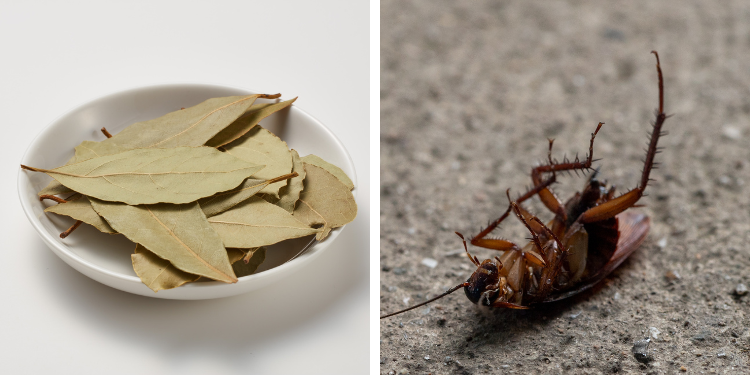
When it comes to pest control, many people want effective solutions without exposing their families, pets, or gardens to harsh chemicals.
The good news is that natural pest repellents offer safe and powerful alternatives to store-bought insecticides and rodenticides—and many of them are already in your kitchen or medicine cabinet.
From bay leaves to deter cockroaches to citronella oil for mosquitoes and black pepper to repel ants and mice, nature provides a variety of scents, compounds, and essential oils that pests hate.
This article explores the most effective natural repellents, how to use them, and why they work.
1. Bay Leaves for Roaches
Cockroaches detest the scent of bay leaves. These common kitchen herbs contain compounds like eucalyptol that irritate the roaches’ senses and drive them away without killing them.
How to use:
-
Crush a few bay leaves and sprinkle the powder in the back of cupboards, under the stove, behind the fridge, or any area where roaches hide.
-
Replace the leaves every two weeks for continued effectiveness.
Bonus tip: Place whole bay leaves in pantry corners to protect dry goods like flour and cereals.
2. Citronella Oil for Mosquitoes
Citronella oil, derived from lemongrass, is a proven mosquito repellent. Its strong lemony scent masks human odors like carbon dioxide and sweat, making it harder for mosquitoes to locate you.
How to use:
-
Add a few drops of citronella oil to a diffuser on your porch or patio.
-
Dilute with a carrier oil (like coconut oil) and apply to exposed skin.
-
Use citronella candles or plant citronella grass in your garden for ongoing protection.
Note: Reapply every couple of hours when outdoors.
3. Black Pepper for Mice and Ants
Both mice and ants rely heavily on scent trails to navigate. Black pepper contains piperine, a compound with a pungent aroma that disrupts their path-finding and irritates their senses.
How to use:
-
Sprinkle ground black pepper around baseboards, entry points, or behind appliances.
-
Reapply after cleaning or if it gets damp.
Why it works: The pepper irritates their nasal passages and causes them to avoid treated areas.
4. Peppermint Oil for Spiders, Mice, and Ants
Peppermint oil is one of the most versatile natural repellents. It repels spiders, ants, and rodents due to its strong menthol scent that overwhelms their scent receptors.
How to use:
-
Mix 10 drops of peppermint essential oil with 1 cup of water and 1 teaspoon of dish soap.
-
Spray along door frames, window sills, and floorboards.
-
Soak cotton balls in peppermint oil and place them in problem areas like drawers or under the sink.
Tip: Refresh cotton balls weekly to maintain potency.
5. Cucumber Peels for Ants and Roaches
Cucumber contains compounds that are toxic to cockroaches and unattractive to ants. The bitter varieties work best.
How to use:
-
Place cucumber peels (especially bitter ones) near pest entry points or corners.
-
Replace every 2 days before they rot.
Tip: Combine cucumber peels with bay leaves for a natural cockroach repellent blend.
6. Vinegar Spray for Ant Trails and Gnats
White vinegar disrupts scent trails and kills soft-bodied insects like gnats and fruit flies on contact. Its acidity also breaks down mold and grease—two common ant attractants.
How to use:
-
Mix equal parts white vinegar and water in a spray bottle.
-
Spray along ant trails, countertops, and areas where you see gnats or fruit flies.
-
Use undiluted for heavy infestations.
Caution: Avoid spraying vinegar on natural stone surfaces like marble or granite.
7. Garlic Spray for Aphids and Mosquitoes
Garlic contains sulfur compounds that make it a natural pesticide and mosquito repellent. Its strong odor repels soft-bodied insects and deters pests from feeding on your plants.
How to use:
-
Blend 2 bulbs of garlic with 2 cups of water, strain, and mix with 1 gallon of water.
-
Spray on plant leaves or garden areas weekly.
-
For mosquito deterrence, plant garlic around patios or garden borders.
8. Cinnamon for Ants and Silverfish
Cinnamon’s strong aroma overwhelms insect senses and repels ants and silverfish, which are sensitive to strong scents.
How to use:
-
Sprinkle ground cinnamon around baseboards, under cabinets, or near entry points.
-
Add cinnamon essential oil to water for a spray solution.
Bonus: Cinnamon has antifungal properties that help prevent mold in damp areas.
9. Cloves for Flies and Moths
Cloves are pungent spice buds containing eugenol, a powerful insect repellent compound. They work particularly well against flies and moths.
How to use:
-
Stick whole cloves into lemon or orange peels and place them in rooms where flies are common.
-
Place sachets of whole cloves in closets or drawers to deter moths.
Tip: You can also boil cloves in water to create a fly-repelling room spray.
10. Coffee Grounds for Slugs and Ants
Used coffee grounds are abrasive and acidic, making them a natural deterrent for soft-bodied pests like slugs and ants.
How to use:
-
Sprinkle coffee grounds around plant bases or garden borders.
-
Place a shallow dish of grounds near ant trails indoors.
Eco-friendly bonus: Coffee grounds also enrich compost and improve soil structure.
Bonus: Lemon Juice for Fleas and Roaches
Lemon juice acts as a natural degreaser and repels pests with its acidic pH and citrus scent.
How to use:
-
Mix lemon juice with water to mop floors or wipe down counters.
-
Spray around entryways and cracks where fleas or roaches may hide.
Using natural pest repellents like bay leaves, citronella, and peppermint oil allows you to maintain a pest-free environment without resorting to harsh chemicals.
These methods are affordable, safe for kids and pets, and environmentally friendly. While they may require more frequent application than synthetic solutions, the trade-off is a healthier home and garden.
Try incorporating a few of these natural repellents into your routine and enjoy a cleaner, greener way to keep pests at bay.



